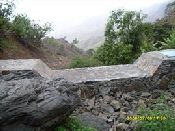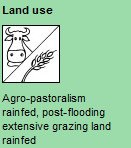| Evaluating strategies: technologies and approaches documented |
 |
For details of all Technologies and Approaches documented in the WOCAT Database (from the DESIRE study sites and from other sites worldwide), see
For those relating to this study site, click on the Name of technology or Name of approach to go directly to the descriptions in the database.
WOCAT Technologies Database
|
Study sites

Acknowledgement
The DESIRE project was
|
DESIRE brought together the expertise of
26 international research institutes
and non-governmental organisations.
This website does not necessarily
represent the opinion of the
European Commission. The European
Commission is not responsible for
any use that might be made of the
information contained herein. 

